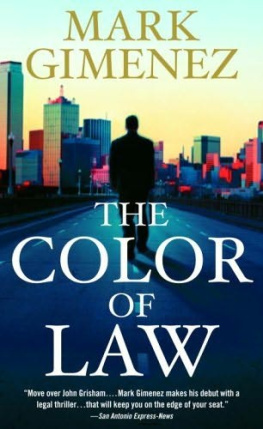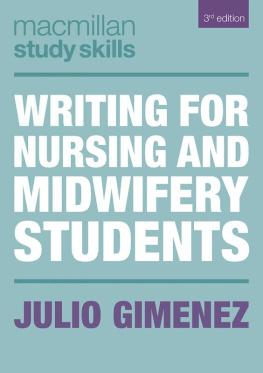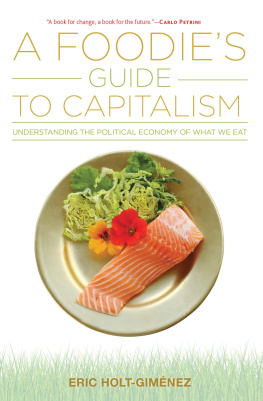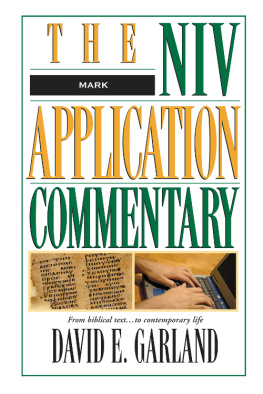Mark Gimenez - The Common Lawyer
Here you can read online Mark Gimenez - The Common Lawyer full text of the book (entire story) in english for free. Download pdf and epub, get meaning, cover and reviews about this ebook. genre: Detective and thriller. Description of the work, (preface) as well as reviews are available. Best literature library LitArk.com created for fans of good reading and offers a wide selection of genres:
Romance novel
Science fiction
Adventure
Detective
Science
History
Home and family
Prose
Art
Politics
Computer
Non-fiction
Religion
Business
Children
Humor
Choose a favorite category and find really read worthwhile books. Enjoy immersion in the world of imagination, feel the emotions of the characters or learn something new for yourself, make an fascinating discovery.

- Book:The Common Lawyer
- Author:
- Genre:
- Rating:4 / 5
- Favourites:Add to favourites
- Your mark:
- 80
- 1
- 2
- 3
- 4
- 5
The Common Lawyer: summary, description and annotation
We offer to read an annotation, description, summary or preface (depends on what the author of the book "The Common Lawyer" wrote himself). If you haven't found the necessary information about the book — write in the comments, we will try to find it.
The Common Lawyer — read online for free the complete book (whole text) full work
Below is the text of the book, divided by pages. System saving the place of the last page read, allows you to conveniently read the book "The Common Lawyer" online for free, without having to search again every time where you left off. Put a bookmark, and you can go to the page where you finished reading at any time.
Font size:
Interval:
Bookmark:
Mark Gimenez
The Common Lawyer
PROLOGUE
St. Aloysius Children's Research Hospital
Ithaca, New York
2:55 A.M.
He stared down at her; his expression was stern and unyielding. He disapproved, as she knew he would.
"Don't look at me like that, Luigi. I'm not crazy."
They stood alone in the vestibule just inside the front entrance where the warmth and disinfectant held their ground against the invading cold air and horde of germs. She brushed snow from her parka and removed her gloves then reached up and caressed his cold cheek. He was just a boy.
"You're not being fair. Of all people, you should understand. God didn't mean for us to live forever."
Over the last three months, they had developed a relationship of sorts. She had often come downstairs late at night and talked to him, Catholic to Catholic, about life and about death, and about life after death, all subjects he knew well. She would look into his eyes and wait for answers that never came. His eyes had always seemed able to see into her soul, but tonight they revealed only his sadness, as if he knew what she was about to do.
"It's the only way."
He did not respond-he never did-so she dropped her eyes like a repentant child from her father's glare. They fell onto the engraving at the base of the stone statue that told of his short life: Luigi Gonzaga had been born in 1568 in Italy, joined the Society of Jesus when he was seventeen, and studied to become a Jesuit; he had contracted the plague while working in a Catholic hospital in Rome. He had cared for the worst victims of the disease, those whom no one else would touch, and he had died at the age of twenty-three. The church awarded him sainthood because he had sacrificed his life to save others: St. Aloysius, the patron saint of children.
"And I'm the Virgin Mary."
Her eyes ran up the life-size figure of the boy saint for one final glance at his face-one final look into those haunting eyes. He could not understand. She turned away and continued into the hospital and past the reception desk and the elevators. She saw no one, and no one saw her. The hospital on the night shift was a lonely place; she had often paced the vacant corridors during those still hours, unable to sleep but unwilling to leave the child. The last few nights she had timed the exact route she was now taking: seven and a half minutes, in and out.
Bright murals stretched down the corridors, and elaborate mobiles hung from the ceiling. Oversized stuffed cartoon characters sat in play areas waiting for the children. The patients' own colorful paintings adorned the walls like pieces of art in a museum. The nurses wore scrubs that were bright splashes of color. The colors, the art, the sunlit atrium, the healing gardens-the hospital tried desperately to present an upbeat mood, but the scent of death permeated the place. It was inescapable.
But they would escape that night.
Her rubber-soled shoes fell silent as she climbed the stairs to the third floor and turned left. Third Floor West. The research wing. Only a handful of nurses would be on duty during the night shift, and those who were took their meal break at 3:00 A.M. She slowed as she approached the nurses' station and listened for voices; she heard none, so she hurried past. She was about to turn a corner when the sound of footsteps came close; she ducked inside a storage closet. The footsteps passed, and she peeked out and saw the uniformed backside of Kelly Fitzgerald, the charge nurse. Kelly was an Irish girl, too, and at thirty only five years older; they had become fast friends and had often shared late-night coffee and cigarettes on the back stairs.
She did not greet her friend that night.
She stepped out of the closet, shut the door quietly behind her, and continued around the corner and down the corridor. She stopped at Room 312, pushed the door open, and stuck her head inside.
The child was asleep.
She backed out and walked down to Room 320. She entered the room and went over to the bed where a sixteen-year-old boy lay sleeping in the dim light. Jimmy had been paralyzed from the neck down in a street racing accident in California when he had lost control and wrapped his car around a telephone pole. He had undergone experimental spinal cord treatment. He was a guinea pig. Everyone on Three West was a guinea pig.
Jimmy was her friend, too. They had talked often, and she had consoled him when he cried. He knew he would never walk again, never play ball again, never date again, never live a normal life again. One stupid teenage mistake and he was in a wheelchair for life. He said he wanted to die. She leaned over and kissed him on his forehead then unplugged his ventilator.
She exited the room and ran back down the corridor to Room 312. She stepped inside and closed the door just before the entire night-shift staff, led by Nurse Kelly, rounded the corner pulling a crash cart. The alarm had sounded back at the nurses' station. They were racing to save Jimmy, as she knew they would. She wasn't there to kill Jimmy.
She was there to save this child.
She pulled a knit cap over the five-year-old girl's head and stuffed her curly red hair inside. It was cold out. She tucked the St. Aloysius pendant and chain she had bought in the gift shop that first day inside the child's pajamas then wrapped her in the hospital blanket and scooped her up. Her adrenaline was pumping hard; the child weighed nothing in her arms. She went to the door and peeked out. No one was in sight. She walked out of the room and hurried down the corridor past the vacant nurses' station.
She descended the two flights of stairs to the ground floor. Only the reception desk stood between them and the front door. She paused at the corner and again listened; she heard no one. Bert, the grandfather moonlighting as the night-shift security guard, would be grabbing a soda and gabbing with the nurses in the break room. She took a deep breath and darted around the corner, past the desk, and over to St. Aloysius. But she did not stop and look into his eyes this time; she could not bear to see his disappointment. She only said, "Goodbye, Luigi," then carried the child out the front doors and through the thick snow to the Jeep 4x4 in the parking lot. She opened the back door and laid her on the seat. The child stirred.
"Mommy?"
She stroked the child's face.
"Shhh. Everything's going to be okay now, honey. No more tests."
The child smiled in her sleep.
She secured her daughter with a seat belt, then climbed into the driver's seat. She started the engine, shifted into gear, and drove off into the dark night.
They were free.
THREE YEARS LATER
ONE
Andy Prescott told his mother he went to church every Sunday morning. He lied. He never went to church on any morning. And that Sunday morning he was sure as hell not in church, at least not the Baptist or Catholic version of church. He was in the Austin version of church: the out of doors. Austinites worship nature.
"You're insane, Andy!"
True. But then, a certain degree of insanity was part of the job description for a hammerhead. Point of fact, you had to be freaking nuts to ride a mountain bike at these speeds over a single-track hacked out of the wilderness and teetering on the edge of a steep ravine with nothing but a foam-padded plastic crash helmet standing between you and organ donor status. Nobody in his right mind would do such a thing.
But Andy loved to go fast.
He glanced back at Tres. Arthur Thorndike III-a family name, the poor bastard, so upon his arrival in Austin ten years before he had quickly acquired the nickname Tres, as in uno, dos, tres lagged Andy by a dozen bike lengths and only that much because Andy was taking it easy on him and because Tres never tempted fate. Tres Thorndike had (a) a trust fund, (b) a gorgeous girlfriend, and (c) a Beemer with personalized license plates that read TRES; consequently, he didn't want to die at twenty-nine. Andy had (d) none of the above, so death before thirty was of no concern.
Font size:
Interval:
Bookmark:
Similar books «The Common Lawyer»
Look at similar books to The Common Lawyer. We have selected literature similar in name and meaning in the hope of providing readers with more options to find new, interesting, not yet read works.
Discussion, reviews of the book The Common Lawyer and just readers' own opinions. Leave your comments, write what you think about the work, its meaning or the main characters. Specify what exactly you liked and what you didn't like, and why you think so.





